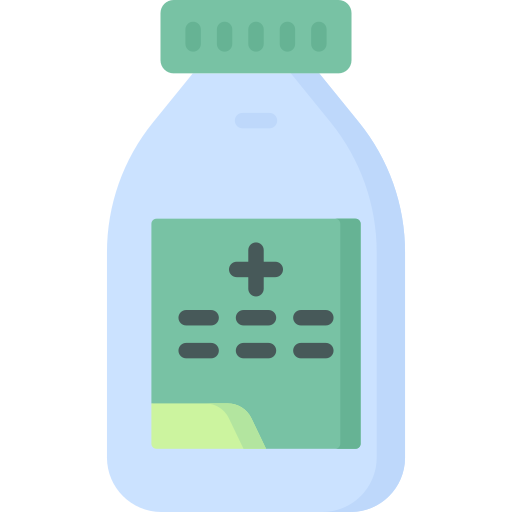
Rotavirus Vaccine
1.5 ml/dose
Healthcare Pharmaceuticals Ltd.
Product Details
Description
Rotavirus is one of the important causes of severe acute gastroenteritis in infants and young children. There are 2 commercially available forms of rotavirus vaccine. Rotavirus is a live, attenuated monovalent vaccine derived from human strain indicated for prevention of rotavirus gastroenteritis caused by G1, G3, G4 and G9 serotypes; Rotavirus as a live, pentavalent human-bovine reassortant vaccine indicated for prevention of gastreoenteritis caused by rotavirus serotypes G1, G2, G3 and G4. Although presence of porcine cirovirus (PCV1 and PCV2) DNA have been detected in the rotavirus vaccine, current available information shows that there is no evidence that PCV1 or PCV2 poses a safety risk to humans. Exact immunologic mechanism of action is not fully understood although it is known that vaccine viruses replicate in the small intestine and promote active immunity.
Rotavirus vaccine is indicated for the prevention of rotavirus gastroenteritis in infants and children caused by Types G1, G2, G3, G4, and G9 when administered as a 3-dose series to infants between the ages of 6 to 32 weeks. The first dose of Rotavirus vaccine should be administered between 6 and 12 weeks of age. The vaccination series consists of 3 ready-to-use liquid doses of Rotavirus vaccine administered orally starting at 6 to 12 weeks of age, with the subsequent doses administered at 4- to 10-week intervals. The third dose should not be given after 32 weeks of age.
Rotavirus vaccine can be given concomitantly with any of the following administered either as monovalent or as combination vaccines: Diphtheria-tetanus-whole cell pertussis vaccine (DTPw), Diphtheria-tetanus-acellular pertussis vaccine (DTPa), Haemophilus influenzae type b vaccine (Hib). inactivated Polio vaccine (IPV), Hepatitis B vaccine and Pneumococcal vaccine. Concomitant administration of Rotavirus vaccine and oral polio vaccine (OPV) does not affect the immune response to the polio antigens. Although concomitant administration of OPV may slightly reduce the immune response to rota virus vaccine there is currently no evidence that clinical protection against severe rotavirus gastroenteritis would be affected. The immune response to Rotavirus vaccine is unaffected when OPV is administered two weeks apart from Rotavirus vaccine. Effects on ability to drive and use machines- not applicable.
Subjects with history of intussusception. Subjects with Severe Combined Immunodeficiency (SCID) disorder The presence of a minor infection, such as a cold, is not a contraindication for immunisation.
In controlled clinical studies, the adverse reaction profile observed in the subjects receiving Rotavirus vaccine was similar to the adverse reaction profile observed in subjects receiving placebo. No increase in the incidence or severity of these reactions was seen with the second dose. However, some adverse reactions considered as being at least possibly related to Rotavirus vaccine vaccination were reported. Very common areirritability, loss of appetite; common arediarrhoea, vomiting, flatulence, abdominal pain, regurgitation of food, fever, fatigue; uncommon are- crying, sleep disorder, somnolence, constipation rare; upper respiratory tract infection hoarseness, rhinorrhoea, dermatitis, rash, muscle cramp; very rare- gastro-enteritis. In a large safety trial, subjects vaccinated with Rotavirus vaccine gave evidence of no increased risk of intussusception when compared with subjects receiving a placebo.
Pregnancy Category C. Animal reproduction studies have shown an adverse effect on the fetus and there are no adequate and well-controlled studies in humans, but potential benefits may warrant use of the drug in pregnant women despite potential risks
It is good clinical practice that vaccination should be preceded by a review of the medical history (especially with regard to previous vaccination and possible occurrence of undesirable events) and a clinical examination. Parents/ guardians should be advised to seek medical advice promptly where these signs/symptoms are evident. There is a potential risk for transmission to non-vaccinated contacts. It should be administered with caution to infants with close contacts who are immunodeficient, such as household members with malignancies or who are otherwise immunocompromised or receiving immunosuppressive therapy. Contacts of recent vaccinees should be advised to observe personal hygiene
Vaccines, Anti-sera & Immunoglobulin
Store refrigerated at 2° to 8°C. Protect vials from light.
-
Support 24/7
Call us anytime -
100% Safety
Only secure payments